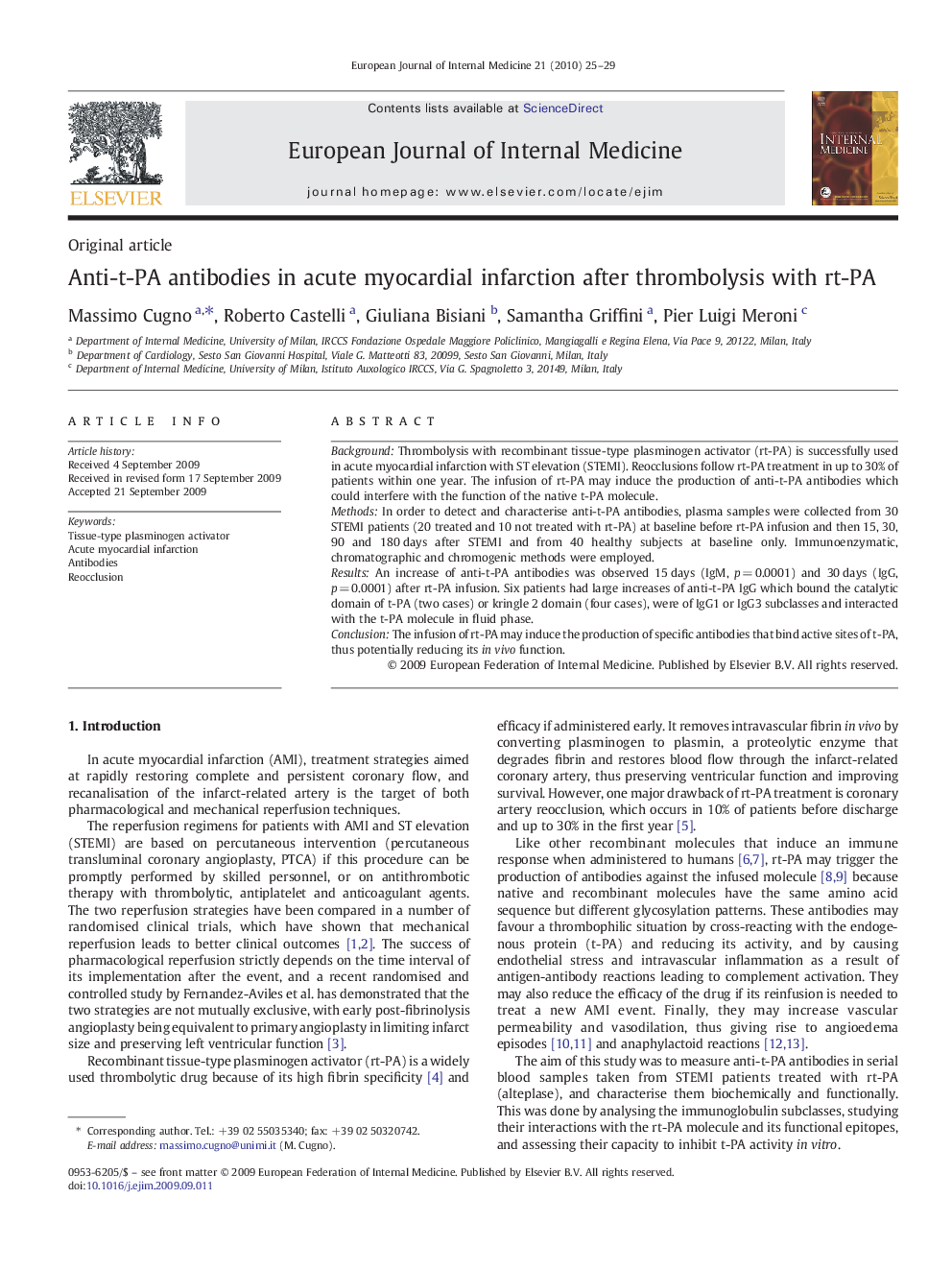| Article ID | Journal | Published Year | Pages | File Type |
|---|---|---|---|---|
| 3467407 | European Journal of Internal Medicine | 2010 | 5 Pages |
BackgroundThrombolysis with recombinant tissue-type plasminogen activator (rt-PA) is successfully used in acute myocardial infarction with ST elevation (STEMI). Reocclusions follow rt-PA treatment in up to 30% of patients within one year. The infusion of rt-PA may induce the production of anti-t-PA antibodies which could interfere with the function of the native t-PA molecule.MethodsIn order to detect and characterise anti-t-PA antibodies, plasma samples were collected from 30 STEMI patients (20 treated and 10 not treated with rt-PA) at baseline before rt-PA infusion and then 15, 30, 90 and 180 days after STEMI and from 40 healthy subjects at baseline only. Immunoenzymatic, chromatographic and chromogenic methods were employed.ResultsAn increase of anti-t-PA antibodies was observed 15 days (IgM, p = 0.0001) and 30 days (IgG, p = 0.0001) after rt-PA infusion. Six patients had large increases of anti-t-PA IgG which bound the catalytic domain of t-PA (two cases) or kringle 2 domain (four cases), were of IgG1 or IgG3 subclasses and interacted with the t-PA molecule in fluid phase.ConclusionThe infusion of rt-PA may induce the production of specific antibodies that bind active sites of t-PA, thus potentially reducing its in vivo function.
